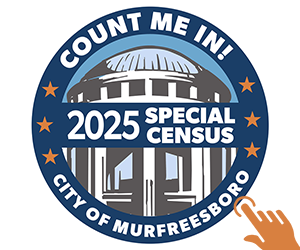RUTHERFORD COUNTY, TN – Why don’t reporters better challenge certain government officials in the news? Is there some type of tactic that is not allowed under certain situations or in certain environments when it comes to the government? What is the full story of what the government is doing? With more, here is MTSU Professor of Journalism Larry Burriss… Hear more from Dr. Larry Burriss by clicking the below graphic, "The Burriss Commentary Files." Scroll down to learn more about Dr. Burriss.
Commentary (Verbatim of Above): “I was watching a press conference the other day, when Homeland Security Secretary Mayorkas, said the southern border is secure.
But just a few minutes earlier I had seen pictures of immigrants streaming across that very same border.
So, I wondered, why didn't a reporter, any reporter, show those pictures to the secretary and ask for his comments? no thought of challenging his statements.
Along the same line, I don't know how many times I've seen White House press secretary Karine Jean-Pierre remain completely unchallenged when she has given an answer completely contradicted by other evidence.
So I've often wondered why reporters don't simply bring a chart or graph to show her, when they know what kind of answer she will give.
Now I'm not one to believe in conspiracy theories, and I don't for a moment believe media companies are working together to suppress, or promote, a certain view of the news.
But I do think there is a place for reporters to work together? Absolutely.
One of the tactics government officials use to limit questions and answers is not to allow detailed follow-up questions from each reporter. But what would happen if reporters got together to help each other with follow-up questions?
It's really quite simple. Government officials know ahead of time what reporters will likely ask at a press conference, so they already know how to prepare their answers.
Well, it's not hard for reporters to know how a government official will probably answer a question. So, reporters could work together, at the press briefing.
A reporter would ask a question, the government official would give the usual non-responsive answer, and the next reporter would ask the follow-up, usually with specific data contradicting the official.
Back during World War II, reporter Edward R. Murrow noted that reporters traditionally cover for other reporters who are prevented from filing their stories.
Maybe we need to get similar cooperation from today's reporters, just to make sure we, the public, get the full story of what our government is doing. - I'm Larry Burriss.”
About Dr. Burriss - Larry Burriss, professor of journalism, teaches introductory and media law courses. At the graduate level he teaches quantitative research methods and media law. He holds degrees from The Ohio State University (B.A. in broadcast journalism, M.A. in journalism), the University of Oklahoma (M.A. in human relations), Ohio University (Ph.D. in journalism) and Concord Law School (J.D.). He has worked in print and broadcast news and public relations, and has published extensively in both academic and popular publications. He has won first place in the Tennessee Associated Press Radio Contest nine times. Dr. Burriss' publications and presentations include studies of presidential press conferences, NASA photography, radio news, legal issues related to adolescent use of social networking sites, legal research, and Middle Earth.
Dr. Burriss has served as director of the School of Journalism, dean of the College of Mass Communication and president of the MTSU Faculty Senate. He was appointed by Gov. Phil Bredesen to serve on the Tennessee Board of Regents. He was a lieutenant colonel in the U.S. Air Force and served on active duty in Mali, Somalia, Bosnia, Central America, Europe and the Pentagon.
Additional WGNS News Headlines:
- UPDATE: Man Accused of Murdering Wife 6-Days After his 80th Birthday
- 16-Year-Old Reported as Missing - Have You Seen Her?
- UPDATE: Murfreesboro Medical Clinic Reopens Some Locations
- California Man Arrested in Murfreesboro Police After MPD Intercepts Fentanyl Pills
- 1-Intruder Killed After Alleged Home Invasion
- 14-Year-old Accused of Stealing a School Bus just outside of Rutherford Co.
- Local Officers Honor Fallen Rutherford Co. Sheriff's Detective
- Unknown Subject Attempts to Break Into Murfreesboro Collectible Store
- Commentary by County Commissioner Craig Harris: All the Different Generations
- UPDATE: Saving AM Radio from Vehicles in the United States







